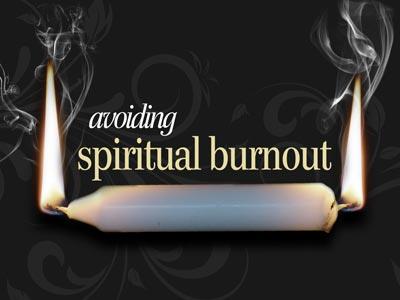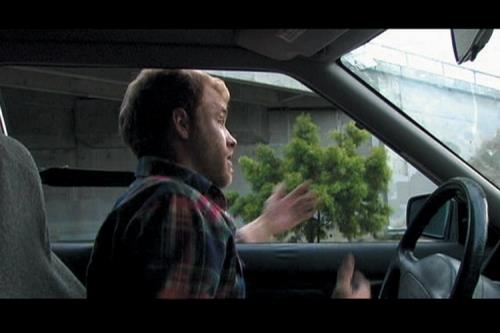-
Freedom From The Pain Of Regret
Contributed by Derrick Tuper on Nov 28, 2017 (message contributor)
Summary: Have you ever done anything you’ve regretted? I believe there’s no pain like the pain of regret. However, we can actually gain freedom from our regrets and move on.
2) Moving from regret to freedom. We move from living a life of regret into living a life of freedom when we…
• Have godly sorrow. 2nd cor. 7:8-10. Susan Wilkinson, in, ‘Getting Past Your Past’, wrote, “An initial sin or mistake leads to regret … which is followed by some destructive coping mechanism … which brings more sin and mistakes … which prompts more regret. On and on the downward spiral goes. Some of the coping mechanisms we turn to include "drugs, alcohol, overeating, gambling, pornography, escapism, or inappropriate relationships. When we rely on these things to cope with guilt and hopelessness, we find that regret begets regret - and the cycle continues." Sin produces regret and then that regret produces more sin and on and on it goes. If there is worldly sorrow, we will see this in action. We feel sorry, but why? Because we got caught? Because we’re suffering the consequences of our actions? Worldly sorrow is all about how my poor choices have affected ME? But if there is godly sorrow, that doesn’t lead to more regrets but rather freedom from regret. Through godly sorrow my focus is not on me, but God. I’m sorry for my sin against God. I’m sorry for how I’ve disappointed God, for how I’ve damaged my relationship with God. When this type of sorrow is present it will lead to repentance because I don’t want to do this to God again. And through that godly sorrow we can now move on. There’s a quote that goes, “Look not back to yesterday, so full of failure and regret; look ahead and seek God’s way—sins confessed you must forget.” Godly sorrow makes this happen.
• Embrace grace. 1st Tim. 1:12-14. Paul had plenty to regret from his old life. He persecuted, imprisoned and took part in the killing of Christians. Now here he was one of them. Talk about having regrets. This could very well have been the thorn in his flesh; the messenger of Satan sent to torment him in 2nd Cor. 12. He pleaded with Jesus to take it away but Jesus’ said that his grace was sufficient for him. His grace was all Paul needed to take away the guilt and shame. Jesus wanted Paul to give his regrets over to him. Jesus wanted Paul to know that the grace that saved him, the grace that forgave him, wiped the slate clean so forget about it. Don’t allow the past to claim your thoughts any longer. Paul was able to grasp and understand that God’s grace was enough for him to be able to move forward and leave his regrets behind. 2nd Tim. 4:6-8. Paul-“I have fought the good fight and have finished the race. I have kept the faith.” Nothing had changed about his past, except the way he dealt with it. Paul moved forward in the sufficient grace of Jesus. There’s a quote that goes, “Regret is unresolved guilt. Take care of the guilt - you take care of the regret.” Paul did that and we can too.
• Do the right thing. 2nd Cor. 7:8-10. Even though Paul’s letter hurt the Corinthians, he didn’t regret sending it because they needed to see what was missing from their lives-regret! There was no godly sorrow for their actions. We, like Paul, don’t have to regret our actions if they are done in love. A tragic event occurred in the spring of 1931 when nine young black men were pulled off an Alabama freight train and accused of raping two young white women. A fight had broken out between blacks and whites in which the whites were thrown off the train; the surprise was that two southern women Victoria Price and Ruby Bates were also on the train, they had also been down to Chattanooga to look for work. Rather than be arrested and put in jail they cried rape. The nine young men called “the Scottsboro boys”, were quickly tried and sentenced to the electric chair. News of their convictions spread, forcing an appeal to the United States Supreme Court. New York attorney Sam Leibowitz traveled to Alabama in 1933 during segregation to defend the nine black men—setting in motion a legal battle that ultimately changed the lives of everyone involved. Unfortunately, Sam Leibowitz lost his case. However, Judge James Edwin Horton overturned the decision of the jury to the favor of the nine black men, which resulted in the ruination of his career; he was never elected to the bench again. Yet he said he never regretted his decision. Even though we might suffer consequences for our actions, we don’t need to regret those actions if they the right ones. When we do the right thing, when we live a life of integrity, when we live above reproach, when we renounce secret and shameful ways, we can live a life of freedom from regret.

 Sermon Central
Sermon Central



